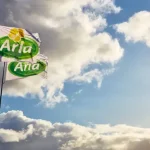
Aotearoa’s rural economy is in for a shock if China’s economic downturn continues and it isn’t yet clear how bad things could get for the emerging superpower, a leading market analyst says.
Wigram Capital principal Rodney Jones told Q+A that the outlook is currently dire and that indicators are pointing the wrong way.
China’s property market in particular is causing concern, because of the amount of capital currently tied up in unfinished projects.
“It’s been building over a long period of time, but the big issue is the developers are all in a process of collapse. Fraud has been endemic. There’s a lack of cash in the developers, and we think there’s something like 70 million unfinished apartments — and the total value is more than $10 trillion of work in progress,” Jones said.
“Economic collapse is a cumulative process, And once it gets going, it takes a lot of effort to stop it, so the risks are really accumulating.”
He said the downturn would have significant effects on consumer spending in China and, with it, demand for exports – particularly the dairy exports that underpin New Zealand’s rural economy.

Cows on a farm near Waiuku. (Source: Getty)
“We’ve remained a bulk-commodity exporter — and you look at those auctions, Chinese demand is important, and they’re not turning up. We’ve done well in terms of exporting over the last few years — that’s starting to change.”
Fonterra and Synlait have cut their forecast milk price to a $7 midpoint, per kilogram of milk solids, after disappointing prices at the global dairy auction.
That cut is expected to remove around $5 billion from New Zealand’s economy and there are no guarantees it won’t go lower.
Jones continued: “The risk is the milk powder price continues to fall.
“And as deflation takes hold in China, which is what we see, and we see they’re doing bulk-buying of some commodities they can store. So we see bulk-buying in oil and refined product. We see bulk-buying in iron ore — that’s not dairy.
“So we’re at the front line; people see New Zealand as the front line of this shock because there’ll be no support for dairy. In fact, they’re trying to produce their own dairy.
“We enabled them to do that — we gave away our cows very cheaply, we transferred our farming systems, and now they are a ferocious competitor with us.”

























